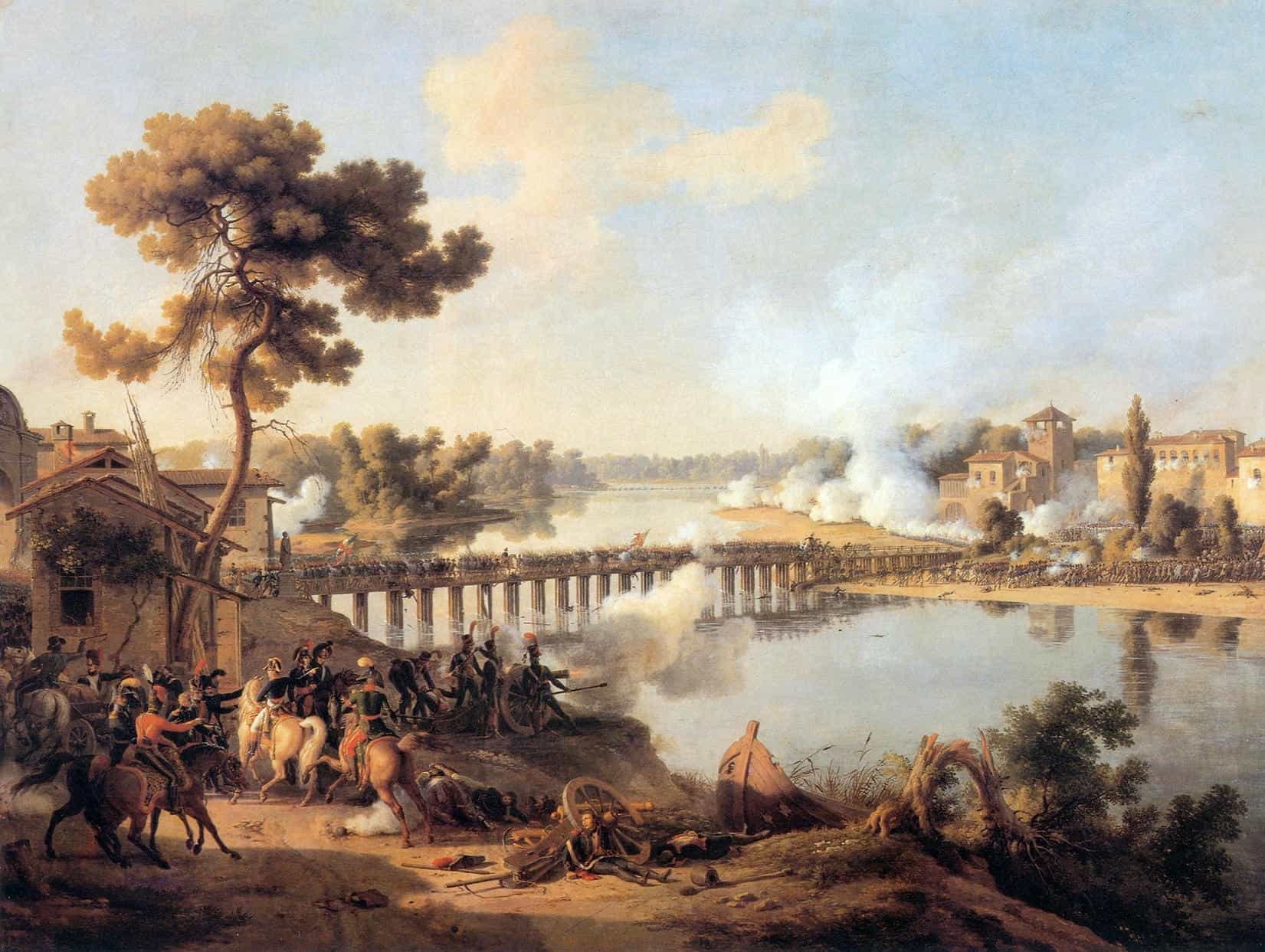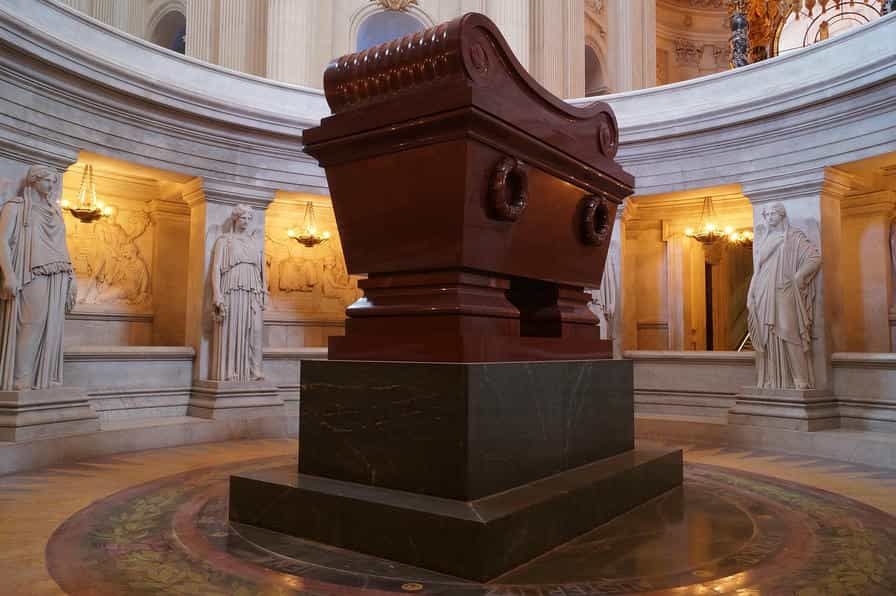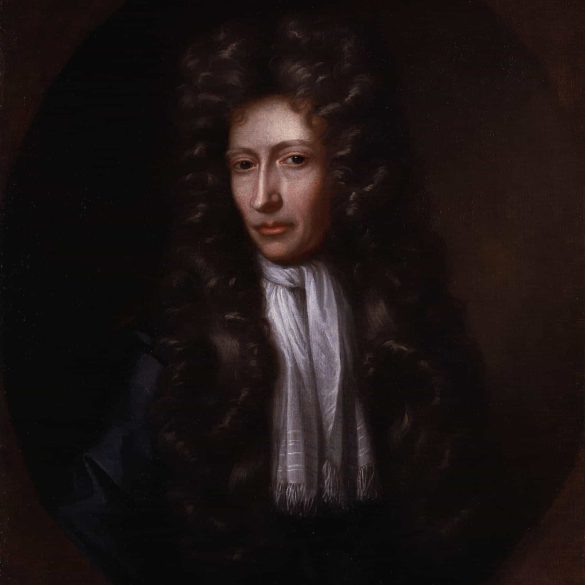Napoleon: The Ultimate Historical Badass Who Changed Everything
Look, I’m gonna be completely honest with you—I’ve been fascinated by Napoleon Bonaparte for years now, and every time I dive deeper into his story, I discover something that makes me go “Holy crap, this guy actually did that?” We’re talking about someone who literally redefined what it means to be a game-changer in human history.
Picture this: a short guy from a Mediterranean island nobody cared about somehow becomes the most powerful person in Europe. Actually, let me correct that—he didn’t just become powerful, he basically rewrote the rules of power itself. This is the kind of story that makes you wonder if someone was playing history on easy mode.
The Making of a Legend: Corsica’s Unlikely Export
Here’s where it gets interesting—Napoleon wasn’t even technically French when he was born in 1769. Corsica had just been bought by France the year before, so this kid grew up speaking Italian and Corsican before he ever properly learned French1. Imagine that for a second—the guy who would become the embodiment of French imperial power wasn’t even culturally French to begin with.
Cool Corsica Fact
Corsica is roughly the size of Connecticut but has produced some of history’s most fascinating characters. Besides Napoleon, it’s also the birthplace of his nephew Napoleon III, who later became Emperor of France. Something about that Mediterranean island air, I guess!
What really gets me about Napoleon’s childhood is how it perfectly set him up for greatness. His father, Charles Bonaparte, was basically a political opportunist who switched sides faster than you change Netflix shows. When Corsica was fighting for independence, Charles was team rebellion. The moment France took over? Boom—suddenly he’s the most French guy you’ve ever met2.
This political flexibility rubbed off on young Napoleon in the best possible way. The kid learned early that survival—and success—sometimes means adapting to changing circumstances. Plus, his mom Letizia was tough as nails. She managed eight kids while dealing with constant political upheaval, and she definitely didn’t raise any weaklings.
At nine years old, Napoleon got shipped off to military school in mainland France. Now, I’ve gotta say, sending a kid away that young seems harsh by today’s standards, but back then? It was basically how you invested in your child’s future. The French military education system was no joke—they weren’t just teaching kids to march and shoot; they were creating the next generation of strategic thinkers.
The School Years That Changed Everything
Napoleon’s time at military school revealed the personality traits that would define his entire life: incredible ambition, a photographic memory for maps and battle strategies, and an almost scary ability to focus on whatever interested him. His classmates nicknamed him “the Little Corporal,” which he actually loved—it suggested he was someone who’d earned respect through merit, not birthright.
What strikes me most about Napoleon’s early education is how it shaped his worldview. He was reading military histories while other kids were playing with toys. By fifteen, he could recite the campaigns of Alexander the Great and Caesar from memory3. That’s not normal teenage behavior—that’s someone who’s already planning their own conquest of the world.
From Nobody to Emperor: The Fastest Rise in History
Okay, so here’s where Napoleon’s story gets absolutely bonkers. We’re talking about a twenty-something artillery officer who, in the span of roughly fifteen years, went from being a minor military figure to literally crowning himself Emperor of France. I mean, that’s faster than most people climb the corporate ladder at a normal job!
The French Revolution created this perfect storm of opportunity. The old aristocracy was either dead or in exile, and suddenly there was this massive power vacuum4. While everyone else was arguing about political theory, Napoleon was like, “You know what? I’m just gonna start winning battles and see where that takes me.”
His first big break came during the Siege of Toulon in 1793. Napoleon was just twenty-four—can you imagine being twenty-four and having people actually listen to your military strategies? But this guy walks up to the commanders and basically says, “Hey, you’re doing this all wrong. Put the cannons here, here, and here, and we’ll have this city in three days.”
And he was right. The strategy worked perfectly, and suddenly everyone’s asking, “Who is this kid?” That’s when I realized Napoleon had something most people don’t—he could see the big picture while simultaneously managing every tiny detail. It’s like having a chess grandmaster’s strategic thinking combined with a project manager’s attention to execution.
The Italian Campaigns: When Everything Clicked
Here’s where Napoleon really proved he wasn’t just lucky—he was genuinely revolutionary. The Italian campaigns of 1796-1797 were his masterpiece. He took this demoralized, poorly supplied French army and turned them into an unstoppable force5.
| Battle | Year | Opponent | Result |
|---|---|---|---|
| Montenotte | 1796 | Austria | Decisive Victory |
| Lodi | 1796 | Austria | Victory |
| Arcole | 1796 | Austria | Victory |
| Rivoli | 1797 | Austria | Crushing Victory |
What made Napoleon’s approach so revolutionary wasn’t just his tactics—it was his understanding of psychology. He knew that armies don’t just fight with weapons; they fight with morale, confidence, and belief in their cause. So he made sure his soldiers knew they weren’t just fighting for France—they were fighting for something bigger than themselves.
The guy had this incredible ability to make people feel like they were part of something legendary. I’ve read accounts of soldiers who would literally march through hell just because Napoleon asked them to6. That’s not just military leadership—that’s borderline supernatural charisma.
The Secret Sauce: Speed and Confusion
Napoleon’s core strategy was beautifully simple: move faster than your enemies expect, hit them where they’re weakest, and don’t give them time to recover. He called it “la manoeuvre sur les derrières”—basically, get behind your enemy and mess up their entire plan. It’s like being three moves ahead in chess while your opponent is still figuring out the rules.
But here’s what really impresses me—Napoleon wasn’t just winning battles; he was completely reimagining how wars could be fought. Traditional 18th-century warfare was this slow, methodical affair where armies would face each other in neat lines. Napoleon threw all that out the window and said, “What if we just moved really fast and hit them from unexpected angles?”
The Egyptian campaign in 1798 was where Napoleon really showed his genius for propaganda and self-promotion. Honestly, the military results were mixed—he won some battles, lost others, and ultimately had to sneak back to France7. But the way he presented it? Pure marketing gold. He made himself look like this exotic conqueror who’d walked in the footsteps of Alexander the Great.
- Brought scientists and scholars to study Egyptian culture
- Discovered the Rosetta Stone (well, his army did)
- Created detailed maps and documentation of Egyptian monuments
- Established the Egyptian Institute for arts and sciences
By the time Napoleon returned to France in 1799, he’d positioned himself as the only person who could save the country from political chaos. And you know what? He was probably right. The Directory was a mess, the economy was struggling, and people were genuinely scared about the future. Napoleon offered stability, competence, and—let’s be honest—a really compelling personal brand.

Emperor Mode: Living Like the Ultimate Boss
The coronation in 1804 was probably the most audacious power move in history. Napoleon literally took the crown from Pope Pius VII and placed it on his own head8. Think about that for a second—he essentially told the entire world, “I don’t need divine approval. I’m crowning myself because I’ve earned it.”
What gets me about Napoleon as emperor is how he managed to be simultaneously progressive and autocratic. On one hand, he was creating this incredibly modern legal system and promoting people based on merit rather than birth. On the other hand, he was basically saying, “Democracy is cute and all, but I’m going to make the important decisions around here.”
The Napoleonic Code might be his most lasting achievement, and honestly, it’s still mind-blowing how revolutionary it was. Before Napoleon, legal systems were this chaotic mess of local customs, religious laws, and arbitrary noble privileges. He basically said, “You know what? Let’s create a single, coherent legal system that applies to everyone equally.”
The Code That Changed Everything
The Napoleonic Code established principles that seem obvious today but were radical in 1804: equality before the law, protection of property rights, freedom of religion, and merit-based government appointments. It became the foundation for legal systems in dozens of countries and is still influential today. Not bad for a guy who supposedly just wanted to conquer stuff!
But Napoleon wasn’t just about laws and battles—he was also surprisingly invested in education and culture. He established the University of France, created the modern French education system, and basically said, “If we’re going to build a great empire, we need educated citizens to run it”9.
I love how Napoleon approached education because it was so practical. He wasn’t interested in creating philosophers or poets—he wanted engineers, administrators, and scientists. The guy understood that real power comes from having competent people who can actually get things done. It’s like he was building a technocracy two centuries before anyone else figured out how effective that could be.
The Personal Side: Romance, Drama, and Family Politics
Napoleon’s personal life was absolutely messy, and I kind of love him for it. His relationship with Josephine was this epic romance that was also a complete disaster. She was older, couldn’t have children, and was probably cheating on him, but he was completely obsessed with her10.
The letters he wrote to Josephine are simultaneously beautiful and cringeworthy. We’re talking about the most powerful man in Europe writing things like “I awake full of you” and “A thousand kisses on your eyes, on your lips, on your tongue.” This guy could command armies, but put him in front of a woman he loved and he turned into a lovesick teenager.
- Divorced Josephine for political reasons (needed an heir)
- Married Marie Louise of Austria (purely strategic alliance)
- Had multiple mistresses throughout both marriages
- Remained emotionally attached to Josephine until his death
The family drama was equally entertaining. Napoleon made his brothers kings and his sisters princesses, but they were constantly fighting with each other and causing diplomatic incidents. His brother Jerome became King of Westphalia and immediately started throwing expensive parties. His sister Pauline scandalized European society by posing as Venus for a sculpture. It was like a really dramatic reality TV show, except with actual kingdoms at stake.
What really strikes me about Napoleon’s approach to culture is how he understood the importance of symbols and spectacle. The Arc de Triomphe, the reorganization of the Louvre, the creation of the Legion of Honor—he got that people need something to believe in beyond just practical governance11.
The Continental System was probably Napoleon’s most ambitious economic experiment. He basically tried to economically isolate Britain by preventing all European trade with them. It was like an early version of economic warfare, and while it didn’t work perfectly, it showed how Napoleon was thinking on a completely different scale than his contemporaries12.
Looking back, what impresses me most about Napoleon’s time as emperor is how he managed to balance so many different roles. He was simultaneously a military commander, a legal reformer, an educational innovator, a cultural patron, and a political strategist. Most people can barely handle one demanding job—this guy was essentially running multiple complex organizations at the same time.
The thing is, Napoleon understood that lasting power isn’t just about winning battles—it’s about creating systems and institutions that people want to preserve. He built something that was bigger than himself, and that’s why his influence lasted long after his armies were defeated.
The Fall and Rise of a Legend
Here’s where Napoleon’s story gets both tragic and somehow even more legendary. The Russian campaign of 1812 was basically the beginning of the end, and honestly, it’s a perfect example of how even genius-level strategists can make catastrophic mistakes when they start believing their own hype.
Napoleon invaded Russia with 600,000 men—the largest army Europe had ever seen. He came back with maybe 30,000 effective soldiers13. That’s not just a defeat; that’s a complete disaster that redefined what military failure could look like. I still get chills thinking about those numbers.
What went wrong? Well, Napoleon made the classic mistake of fighting the weather instead of just the enemy. Russian winter doesn’t care how many battles you’ve won—it’ll kill you just as dead whether you’re a brilliant general or a regular soldier. Plus, the Russians used this scorched earth strategy that basically turned their entire country into a giant trap.
The irony is that Napoleon knew this quote better than anyone, but somehow he still marched into Russia without adequate supply lines. It’s like watching someone who’s an expert on fire safety accidentally burn down their own house. Sometimes expertise can make you overconfident in all the wrong ways.
Waterloo in 1815 was where it all finally ended, and I have to admit—there’s something almost poetic about how it played out. Napoleon had escaped from Elba (which was honestly an incredible story in itself), raised an army in a hundred days, and came within inches of winning one last time. Wellington later said it was “the nearest-run thing you ever saw in your life”14.
The Hundred Days: One Last Roll of the Dice
Napoleon’s return from Elba was like something out of a movie. He landed in France with 700 men and within three weeks had an army of 200,000. People literally threw down their weapons and joined him just because he showed up. That’s not just charisma—that’s approaching supernatural levels of personal magnetism.
Legacy: The Man Who Changed Everything
Okay, so here’s what really blows my mind about Napoleon’s legacy—he lost his final battles, spent his last years in exile, and died on a remote island, but somehow he still won the long game. His ideas, his legal system, his approach to education and government—they outlived him by centuries.
The Napoleonic Code is still the foundation of legal systems in over 70 countries15. Every time someone talks about equality before the law or merit-based promotion, they’re basically channeling Napoleon’s vision. He didn’t just conquer Europe—he conquered the future.
What I find most fascinating is how Napoleon’s influence spread far beyond Europe. Latin American revolutionaries like Simón Bolívar were directly inspired by his example. The modern concept of nationalism? That’s largely Napoleon’s doing. The idea that regular people could achieve extraordinary things through talent and determination? Napoleon basically invented that as a political philosophy.
- Legal systems worldwide still use Napoleonic Code principles
- Modern education systems follow his merit-based approach
- His military strategies are still studied in academies globally
- The concept of the “citizen-soldier” transformed modern warfare
The guy literally died saying “France, army, head of the army, Josephine,” which tells you everything about what mattered to him16. Even at the end, he was thinking about his country, his soldiers, and the woman he never got over. That’s not just historically significant—that’s genuinely moving.
Looking at Napoleon’s complete story, what strikes me most is how he managed to be both completely of his time and completely ahead of it. He understood the revolutionary moment he was living through, but he also saw possibilities that nobody else could imagine. That’s the mark of someone who doesn’t just respond to history—they create it.
References



